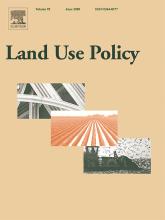Resource information
This study was undertaken to examine local perceptions of the impacts of small-scale tree plantations, notably of Acacia decurrens (J.C. Wendl.) Willd., in Ethiopia’s Upper Blue Nile Basin. A particular focus of our study was on the different dimensions of livelihood sustainability centering on economic, social, human, physical, and natural capital. The unprecedented expansion of small-scale tree plantations in degraded agricultural land can be attributed to farmers’ efforts to overcome the problems of limited income options and land degradation. However, these initiatives may have differential effects in terms of maintaining the sustainability of the natural environment and rural livelihoods. Interviews conducted with farmers revealed that the plantation system has yielded rich benefits by increasing their incomes, providing them with employment and improving their social lives. The plantations have also significantly improved degraded soils, thereby increasing natural capital. However, associated risks have also been found related to rising food prices, caused by a shift from annual to perennial crops and growing inequalities, with small farmers or those with limited financial resources having fewer options to invest in plantations. Moreover, in the face of such a positive overall impact of the plantation systems, the regulation of child labor, a potential issue, could become difficult. Apart from measures to address the issue of child labor, improved infrastructure and market access are required to help balance food security and plantation systems through functioning markets and financial systems that enable economically impoverished farmers to participate in this business. These findings offer important insights for research and policies seeking to sustain small-scale farmers’ tree plantation systems, land use, and rural livelihoods.


